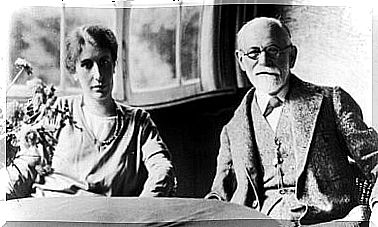People With Compulsive Needs: An All Too Common Phenomenon

People with compulsive needs swarm around us like stubborn insects in search of food. They only speak one language: “I want, I need, I have to tell” and so on. We are talking about people who cannot handle their frustrations, who lack personal autonomy and the ability to take responsibility for their lives in a coherent and mature way.
Many psychologists say that these exaggerated “needs” are the real public disease of the 21st century. Perhaps it is society itself that has driven us towards this type of behavior. In many cases, this has been driven by a certain desire to consume and by an almost constant need to fill our existential vacuum.
The lack of something
We’re missing something and we do not really know what it is. Therefore , we sometimes become sad souls who spend time with our friends in search of a “kick”, a stimulus to satisfy our inexplicable longing. Sometimes we look for an impossible love, new experiences, a new mobile or new clothes. Sometimes it’s a new TV series that helps us forget about our stress and our problems. Other times it is food that relieves our anxiety and so on.
We need all things, we need all people. We are all “needy” to some degree. But the problem arises when this deficiency turns us into people with compulsive needs. We’re talking about the kind of person who’s desperately looking for something they can not define. In this way, they irritate others and make them feel obligated to meet their needs and requirements.

Compulsive needs and psychology
This is a growing phenomenon that deserves to be addressed and, above all, understood. People with compulsive needs are everywhere. They are more than ever and are also among the most common cases in psychologists’ clinics. They arrive in a confused state, really frustrated and often quite angry at how the world has treated them. Or more specifically how their friends and family have treated them.
No one seems to be able to meet their expectations. Nor has anyone succeeded in giving them the affection they feel they deserve. The people who always have to stand up for them can hardly count on one hand. People with compulsive needs understand the world only from their own perspective. They cannot understand the extent of their constant demands and their selfish and totalitarian desires.
Their attitude is so childish and demanding that the first thing the psychologist must do is break down the barrier. He must make them see that there is an infinite void behind the constant need. Achieving this is not easy. These people have always been used to doing only as little as they can and letting others take care of them, solve their problems and free them from all their fears and difficulties.

How to help people with compulsive needs
The quality of life of a person who has a definite feeling that he is always missing “something” can be terrible. Albert Ellis once said: “the thought of constant needs causes us to lose control, which leads to negative emotions “. If this is the case, it depends on something as simple as it is obvious: the feeling of “needing something” is related to our sense of survival.
In other words, the void we need to fill makes us believe that we will not be able to move forward. If people do not help me, if they do not support me, if I can not get this or that thing, everything will fall apart. Thus, the feeling of missing something creates fear, the fear creates need and the need leads to despair. We are facing a vicious circle that must be deactivated in order for us to function in a more logical, healthy and meaningful way.
Keys to reduced need
The first step we need to take with these people is to work on their real needs. A good exercise is to try to replace “I need” with “I want”. For example:
- “I need others to listen to me.” ⇔ “I want to feel valued, because I do not love myself enough.”
- “I need others to help me solve my problems.” ⇔ “I want help because I feel unable to cope with what is happening to me.”
Once the person has become aware of their real lack or weaknesses (low self-esteem, insecurity, inability to solve problems, lack of decision-making ability, etc.), it is time to work on each of these aspects in depth.

Stand on own legs
Another crucial point in this process is to get the person to apply a simple rule in their daily life: ” I must try to find in myself what I have been looking for in other people “.
- In other words, if I need someone to sort out a problem, I should try to do it myself instead. If I want someone to give me support in a certain situation, I should instead try to motivate myself first. I will try to find strength and positive words from within myself to achieve the goal I strive for.
- In the same way , this type of person is characterized by a lack of personal development. It is therefore appropriate to encourage them to gain new experience. This is to help them reflect on and work on opening up their emotions.
Last but not least, it never hurts to work with empathy and social awareness. These people need to understand that others also need. That in life you not only have to learn how to use the words “want” or “need”, but also another more important, “offer”.









